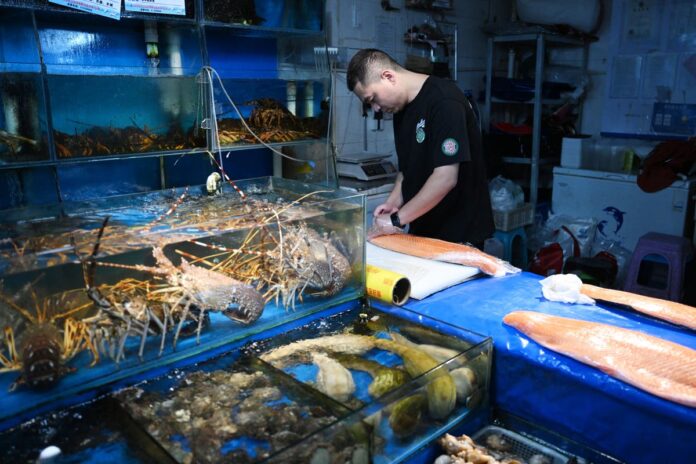No radioactive anomalies have been found in fishes tested in waters around the Fukushima nuclear plant, Japan ‘s fisheries agency said on Saturday. The tested waters did not contain any detectable levels of the radioactive isotope tritium, the Japanese Kyodo news service said as the country faced fierce criticism for discharging treated radioactive water from the nuclear power plant into the Pacific Ocean. On Friday, the seawater near the nuclear facility contained less than 10 becquerels of tritium per litre, below its self-imposed limit of 700 becquerels and far below the World Health Organization’s limit of 10,000 becquerels for drinking water. Japan has said it needs to discharge the highly reactive water in a key step of its critical process of decommissioning the Fukushima Daiichi plant, including the removal of molten fuel. The Fumio Kishida administration on Tuesday cleared the release of 1.3 million tons of treated water from the plant destroyed in the 2011 tsunami as the country’s top power company was running out of storage space. While the utility filters most radioactive elements out of the water, it dilutes tritium, an isotope of hydrogen, which is difficult to separate from water. The contentious project began on Thursday, amid fresh and fierce criticism as neighbouring nation China slammed the move as ‘selfish and irresponsible’. China has already banned seafood imports from Japan, with Hong Kong expected to follow suit. Fishermen, activists and consumers in Japan have expressed anger at the move which can cause a health crisis amid a ban on Japanese aquatic products. Food lovers in the region have also expressed concerns over the quality and safety of the fish from the country. The decades-long project was approved two years ago by the Japanese government and given the greenlight by the UN nuclear watchdog last month. However, authorities on Thursday set up nets when plant operator Tokyo Electric Power Company (Tepco) began releasing treated radioactive water into the Pacific. Tepco agency has said it will announce test results daily. Hundreds have gathered in South Korea in a protest led by the country’s main opposition party and civil groups in downtown Seoul against the discharge of radioactive water. The protest, on Saturday 26 August, is against Japan’s discharge of treated radioactive water from the Fukushima nuclear plant into the Pacific Ocean. The import ban from Hong Kong, that was slated to come into effect from Thursday, covers 10 Japanese prefectures. These include Tokyo, Fukushima, Chiba, Tochigi, Ibaraki, Gunma, Miyagi, Niigata, Nagano and Saitama. The ban on seafood imports in China has triggered a sense of unease among seafood aficionados, who now face the dilemma of finding credible seafood sources, several reports said. Japanese fisheries groups worry the release will cause further damage to the reputation of their seafood. Fukushima prefecture’s current catch is only about one-fifth its pre-disaster level due to a decline in the fishing population and smaller catch sizes.
Japan says no radioactivity found in Fukushima fish as first batch of water tested
Sourceindependent.co.uk
RELATED ARTICLES


